
Key Takeaways
- AI-powered personalized product recommendations enhance the shopping experience and boost conversion rates.
- AI-driven chatbots and virtual shopping assistants provide real-time assistance and personalized suggestions to customers.
- AI algorithms detect and prevent fraudulent activities, ensuring a secure e-commerce environment.
- AI and ML optimize supply chain management, reducing costs and ensuring timely product delivery.
- ML algorithms accurately forecast demand and optimize inventory management for e-commerce businesses.
- AI and ML technologies enable virtual try-on experiences and augmented reality applications, enhancing the online shopping experience.
Picture this: You’re sitting on your couch, browsing an eCommerce website, and suddenly, like magic, the perfect product recommendation pops up on your screen.
How did they know exactly what you were looking for? Well, my friend, that’s the incredible role of artificial intelligence (AI) in eCommerce.
It’s like having a shopping genie who can read your mind and make your dreams come true.
In this article, we will dive into the fascinating world of AI and how it’s revolutionizing our online shopping.
Get ready to be amazed!
The role of artificial intelligence in eCommerce marketing automation

Artificial intelligence (AI) greatly impacts eCommerce marketing, making shopping experiences more personal and convenient.
Let’s explore how AI revolutionizes how businesses connect with customers, target their marketing efforts, and manage their inventory.
A. Enhancing customer experience
1. Personalized recommendations
Have you ever noticed how online stores suggest products that match your interests?
Using generative AI development services, analyze your browsing and purchase history to provide tailored recommendations, making finding what you need easier and discovering new things you might like.
For example, if you’re looking for leather couches, AI algorithms can recommend products based on what you’ve clicked, searched and purchased before.
2. Smart pricing
Have you ever wondered why prices for certain products change frequently?
AI-powered pricing systems use data to adjust prices in real-time based on factors like demand, competition, and even your buying behavior.
This helps businesses offer competitive prices and maximize sales while ensuring fair deals.
3. Instant support
When you have questions while shopping online, AI-powered chatbots assist you.
These friendly virtual assistants can answer your queries, help you find products, and provide support around the clock, making your shopping experience smoother and more enjoyable.
B. Improving targeting & segmentation
1. Tailored marketing campaigns
AI algorithms analyze data to understand your preferences, behaviors, and demographics.
This helps businesses create targeted marketing campaigns designed specifically for people like you so you see ads and offers relevant to your interests.
2. Personalized messages and offers
AI tracks your activities on websites, emails, and social media to understand your behavior.
Based on this information, businesses can send you personalized messages and offers, giving you a more customized shopping experience and increasing the chances of finding products you love, this is one of the best AI business ideas.
3. Listening to your feedback
AI tools can analyze customer reviews and feedback to understand how people feel about products and services.
This helps businesses improve their offerings, address concerns, and ensure customers like you have a great shopping experience.
C. Streamlining inventory management & logistics
1. Predicting demand
AI algorithms use historical sales data, market trends, and other factors to predict future demand accurately.
It helps businesses stock the right amount of products, avoid shortages, and ensure that the things they want are available when needed.
2. Efficient supply chain
AI-powered systems optimize various aspects of the supply chain, like managing inventory and coordinating deliveries.
This integration of AI in the supply chain enables companies to reduce costs, expedite product delivery, enhance the shopping experience, and gain a competitive edge in the market.
3. Preventive maintenance
AI algorithms can monitor the performance of equipment and predict maintenance needs.
By catching potential issues early on through preventive maintenance, businesses can fix problems before they cause disruptions, ensuring that their operations run smoothly, and you receive your orders on time.
AI’s impact on eCommerce doesn’t stop there! For example, virtual assistants powered by AI can converse with you, helping you find the perfect products or answer your questions.
Image recognition technology allows you to search for products using pictures, making finding what you’re looking for even more accessible.
AI-powered chatbots can handle complex tasks like tracking orders or arranging returns, saving you time and providing quick assistance.
By incorporating AI into eCommerce marketing automation, businesses can offer you a more personalized shopping experience.
It deliver targeted ads and ensure that products are available when you need them.
AI helps make online shopping easier, more enjoyable, and tailored to your preferences.
So, the next time you shop online, remember that AI is working behind the scenes to make your experience the best it can be.
The role of machine learning in eCommerce marketing automation
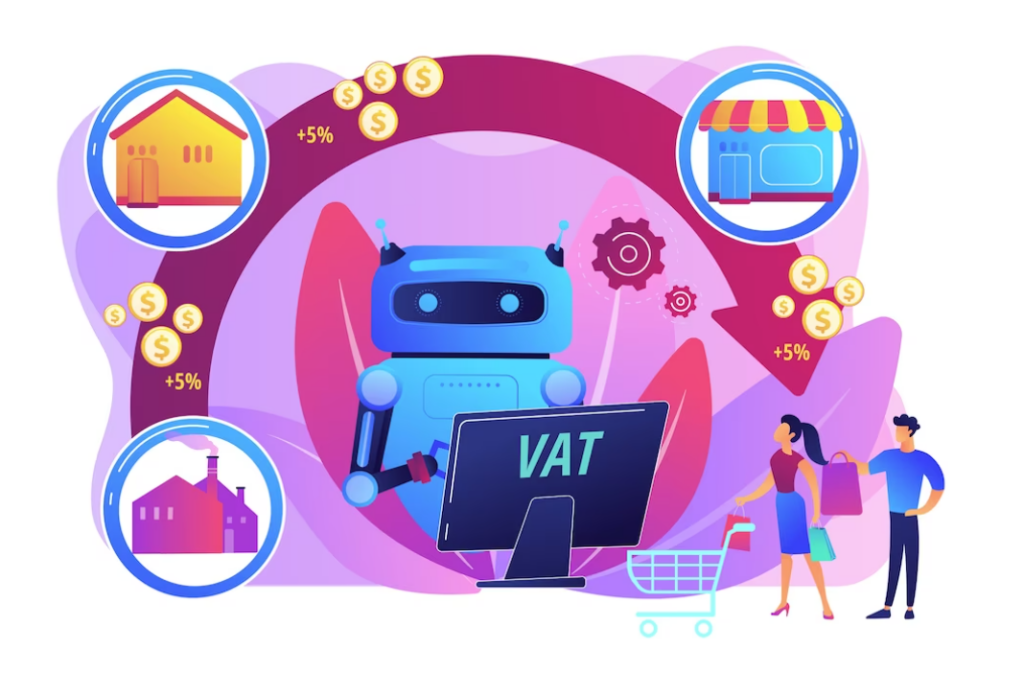
Machine learning (ML) is a powerful tool that enhances eCommerce marketing automation by enabling advanced data analytics, fraud detection and prevention, and ad campaign optimization.
To truly understand how AI tackles complex challenges, a machine learning course can provide insight into the algorithms and techniques behind these smart problem-solving systems.
Let’s dive into how machine learning shapes the eCommerce landscape.
A. Advanced data analytics
1. Customer behavior analysis
Machine learning models analyze vast amounts of customer data, such as browsing history, purchase patterns, and demographics, to uncover valuable insights.
By understanding customer preferences and behaviors, businesses can tailor their marketing strategies to target the right audience with the right products or offers.
2. Purchase pattern recognition
Machine learning algorithms identify patterns in customers’ purchase behavior.
By recognizing buying trends and recommending relevant products or upsells, businesses can increase the average order value and maximize revenue.
3. Customer lifetime value prediction
Machine learning models analyze historical customer data to predict the potential value of a customer over their lifetime.
This insight allows businesses to allocate resources strategically, focusing on high-value customers and nurturing long-term relationships.
B. Fraud detection & prevention
1. Anomaly detection
Machine learning algorithms are adept at spotting unusual patterns or behaviors in transactions.
By detecting anomalies, businesses can identify and prevent fraudulent activities, safeguarding both themselves and their customers from potential harm.
2. Transaction monitoring
Machine learning models continuously analyze transaction data in real-time, flagging suspicious activities or unusual transaction patterns.
This proactive approach enables businesses to identify and prevent fraudulent transactions, ensuring a secure and trustworthy eCommerce environment.
3. User authentication
Machine learning algorithms utilize user behavior analysis and biometric data to authenticate users.
By examining patterns in user interactions, ML algorithms can verify user identities accurately, enhancing security measures and reducing the risk of fraud.
This helps users interactions, ML algorithms can verify user identities accurately, enhancing security measures and reducing the risk of fraud.
Identify security first by utilizing machine learning’s ability to analyze user interactions
C. Ad campaign optimization
1. Customer profiling for targeted ads
Machine learning models analyze customer data to create accurate customer profiles.
By understanding customers’ interests, preferences, and demographics, businesses can create ads with AI that are highly targeted and relevant, increasing the chances of conversion.
2. A/B testing and optimization
Machine learning algorithms automate the process of A/B testing, allowing businesses to test different variations of ads and identify the most effective campaigns.
By optimizing their marketing strategies based on real-time data analysis, businesses can maximize the impact of their ad campaigns and achieve better results.
3. Conversion rate prediction
Machine learning models leverage customer data and historical conversion rates to predict the likelihood of conversions.
This predictive capability enables businesses to allocate their resources effectively, focusing on channels or campaigns that are more likely to yield positive results and drive conversions.
Benefits of artificial intelligence in eCommerce marketing automation

Artificial Intelligence (AI) brings a wealth of benefits to eCommerce businesses by revolutionizing marketing automation.
Let’s explore the advantages that AI offers in transforming eCommerce marketing strategies.
Increased sales & revenue
1. AI-powered personalization
AI algorithms analyze vast amounts of customer data, including browsing history, purchase patterns, and preferences.
This enables businesses to deliver personalized product recommendations, increasing the likelihood of conversions and driving sales.
Also, incorporate a video translator to enhance the user experience and reach a broader audience.
2. Optimization techniques
AI optimizes various aspects of eCommerce marketing, including pricing, promotions, and ad campaigns.
By leveraging AI-powered algorithms, businesses can maximize customer engagement, boost conversion rates, and ultimately increase revenue.
B. Enhanced customer satisfaction & loyalty
1. Personalized experiences
AI development enables businesses to create personalized experiences by tailoring product offerings, recommendations, and marketing messages to individual customers.
This level of personalization enhances customer satisfaction and builds long-lasting customer loyalty.
2. Quick customer support through chatbots
AI-powered chatbots provide instant assistance to customers, answering common queries, and resolving issues promptly.
This improves response times, ensures round-the-clock support, and enhances overall customer satisfaction.
3. Improved product recommendations
AI algorithms analyze customer behavior and preferences to deliver accurate and relevant product recommendations.
By suggesting products that align with customers’ interests, businesses can enhance the shopping experience and increase customer engagement.
C. Time & cost savings
1. Automation of manual tasks
AI automates repetitive and time-consuming tasks in eCommerce operations, such as inventory management, order processing, and data analysis.
By offloading these tasks to AI systems, businesses can save time and reduce human effort, allowing employees to focus on more strategic activities.
With the right level of AI readiness, companies can seamlessly integrate these technologies to enhance operational efficiency and scalability.
2. Operational cost reduction
AI-driven automation reduces operational costs by minimizing errors, optimizing processes, and streamlining workflows.
In addition, AI can significantly improve sales enablement by providing real-time insights and automating routine sales tasks.
This leads to greater efficiency, lower labor costs, and improved overall business performance.
D. Improved decision-making
1. Data-driven insights
AI analyzes vast amounts of data, providing businesses with valuable insights into customer behavior, market trends, and competitor strategies.
By leveraging these insights, businesses can make informed, data-driven decisions and adapt their marketing strategies accordingly.
2. Predictive analytics
AI-powered predictive analytics models forecast customer behavior, market demand, and sales trends.
This enables businesses to anticipate future needs, optimize inventory levels, and plan marketing campaigns effectively.
AI tools for eCommerce
The integration of AI tools in eCommerce empowers businesses with advanced capabilities to enhance marketing strategies, customer experiences, and operational efficiency.
Let’s explore some popular AI tools that are transforming the eCommerce landscape:
1. Writerly.ai
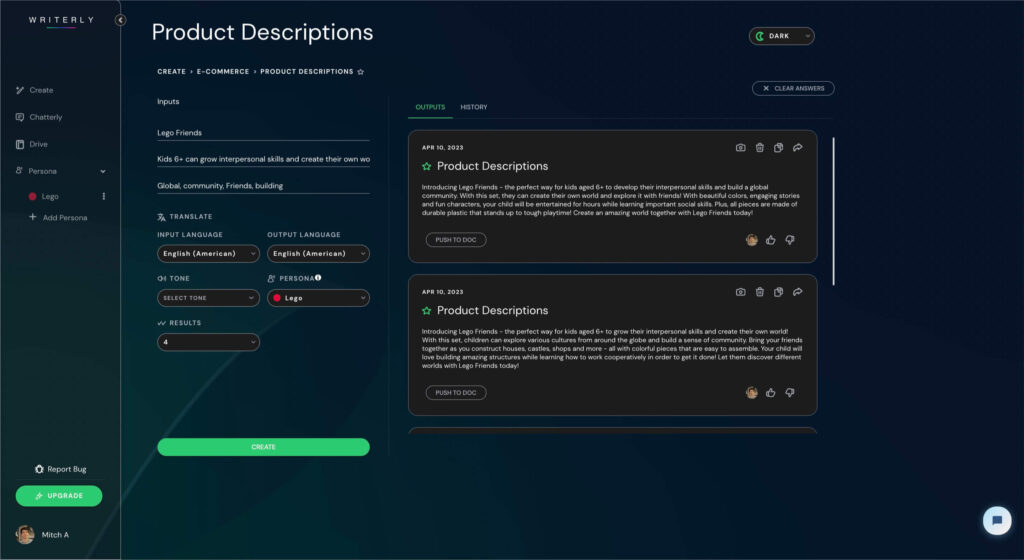
Writerly.ai is an AI-powered tool that helps eCommerce businesses generate compelling and engaging product descriptions, blog posts, and other content.
It uses natural language processing (NLP) algorithms to analyze existing content and create high-quality, SEO-friendly copy, saving time and effort for content creation.
2. Neural Love
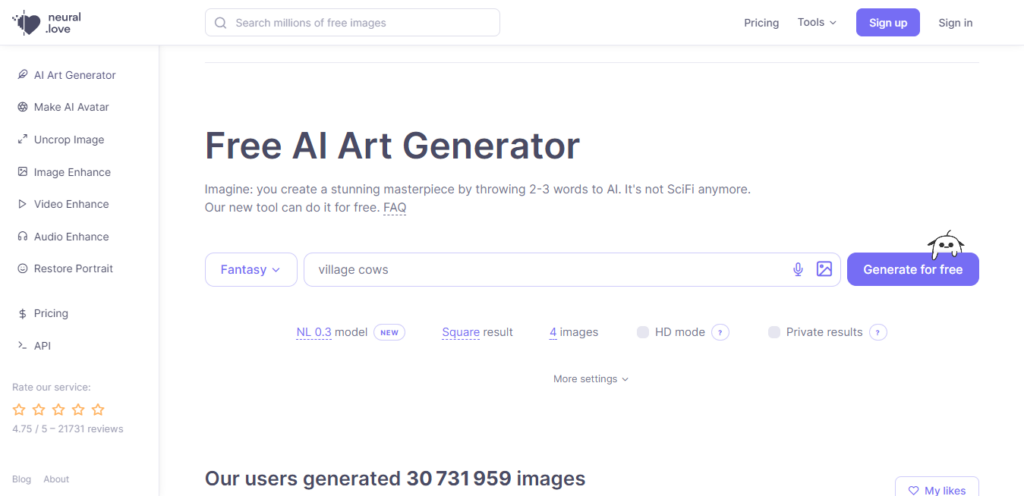
Neural Love is an AI-driven tool that leverages computer vision algorithms to enhance image recognition and product recommendation systems.
It can analyze product images, extract relevant features, and generate accurate recommendations based on visual similarity.
This tool helps eCommerce businesses improve product discovery and personalization, ultimately boosting sales. For businesses looking to build similar AI-powered tools, platforms like Toptal make it easy to hire a computer vision developer with proven expertise in the field.
3. Descript
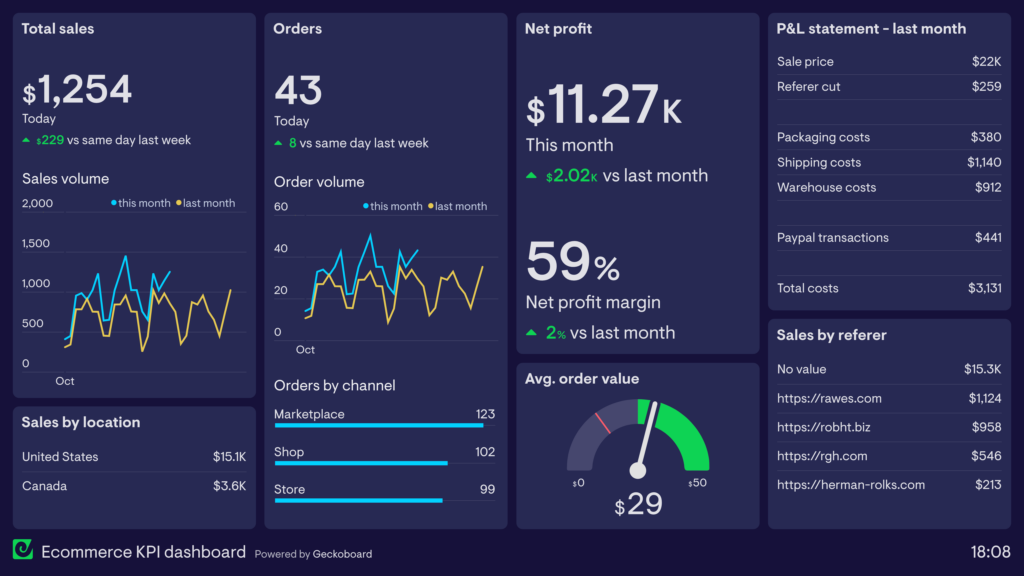
Descript is an AI tool that utilizes speech-to-text algorithms and natural language processing to automate transcription and audio/video editing.
eCommerce businesses can leverage this tool to streamline the creation of product videos, podcasts, and other audio content.
It simplifies the editing process and improves content accessibility for a wider audience.
4. Salesforce Einstein
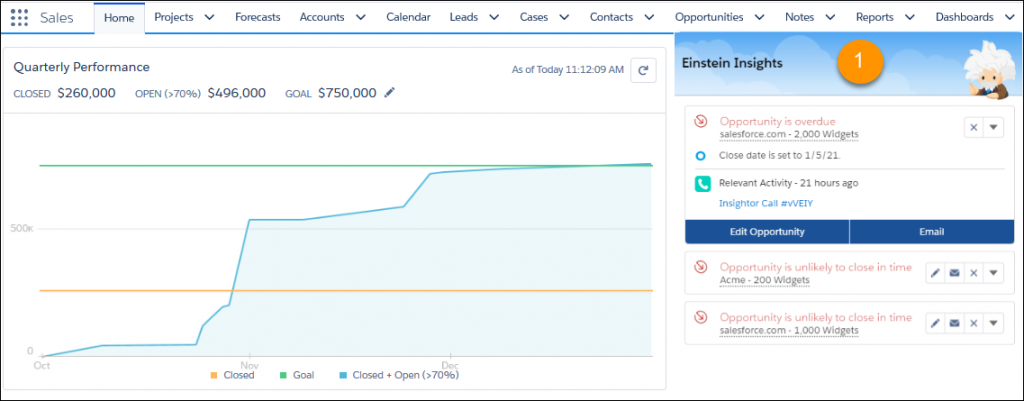
Salesforce Einstein is an AI-powered platform that offers a range of tools and features for eCommerce businesses.
It provides predictive analytics, personalization capabilities, and customer segmentation based on AI algorithms.
With Einstein, businesses can deliver tailored experiences, optimize marketing campaigns, and drive customer engagement.
5. Google Cloud
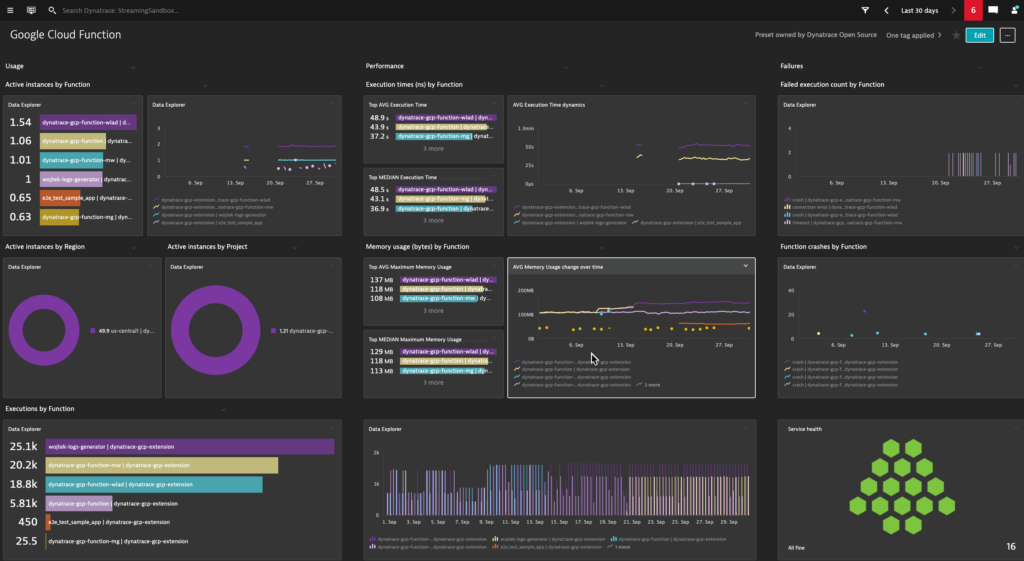
Google Cloud’s AI Recommendation service enables eCommerce businesses to leverage machine learning algorithms to deliver personalized product recommendations.
It analyzes customer behavior, purchase history, and browsing patterns to generate accurate and relevant suggestions.
This tool helps businesses increase customer satisfaction, drive conversions, and boost revenue.
6. Imagetotextconverter.net
Imagetotextconverter.net is an AI-powered OCR tool that can extract text from images and PDF files. Marketers can use it to extract text from pictures of ads, infographics, banners, posters, etc., to use them in their own designs, or to reformat them for a different audience.
Marketers also use this tool to create accurate image descriptions and alt-text on eCommerce sites to
boost their SEO and get more traffic.
How AI used in eCommerce?

1. Chatbot platforms
AI-powered chatbot platforms, such as kommunicate, Chatfuel and ManyChat, provide eCommerce businesses with the ability to offer instant customer support and engage with customers 24/7.
These chatbots can answer queries, provide product recommendations, and assist with the purchasing process.
2. Visual search tools
AI-powered visual search tools, like Slyce and Pinterest Lens, enable customers to search for products using images.
By analyzing visual features, these tools allow users to find similar products, enhancing the shopping experience and facilitating product discovery.
3. Predictive inventory management
AI algorithms can analyze historical sales data, market trends, and external factors to predict demand accurately.
Additionally, inventory management for e-commerce businesses helps to optimize inventory levels, reduce stockouts, and improve overall supply chain efficiency.
4. Sentiment analysis tools
AI-driven sentiment analysis tools, such as MonkeyLearn and Brandwatch, analyze customer feedback, reviews, and social media conversations to gauge customer sentiment.
This enables businesses to understand customer opinions, identify trends, and address concerns proactively.
By leveraging these AI tools, eCommerce businesses can unlock new possibilities in automation, personalization, content creation, customer support, and data analysis.
Incorporating these tools into their operations empowers businesses to stay competitive in the dynamic eCommerce landscape and deliver exceptional customer experiences.
Machine learning use cases in retail

Artificial intelligence (AI) and machine learning (ML) have emerged as integral components in the realm of e-commerce, revolutionizing the way businesses operate.
The role of AI in e-commerce spans across various domains, and its applications continue to grow rapidly.
Here are some detailed points showcasing the extensive benefits and diverse use cases of AI and ML in the e-commerce sector:
1. Personalized product recommendations
AI algorithms analyze vast amounts of customer data, including browsing history, purchase behavior, and demographics, to offer highly accurate and personalized product recommendations.
This enhances the overall shopping experience, increases customer engagement, and boosts conversion rates.
2. Virtual shopping assistants
AI-powered chatbots and virtual assistants enable seamless customer interactions by providing real-time assistance and answering queries.
These intelligent assistants can help customers find products, offer personalized suggestions, and provide information on promotions, discounts, and availability.
3. Fraud detection and prevention
AI algorithms can detect patterns and anomalies in transactional data to identify fraudulent activities and protect businesses and customers from potential scams.
ML models learn from historical data to continuously enhance their fraud detection capabilities, ensuring a secure and trustworthy e-commerce environment.
4. Image and voice recognition
AI technologies such as AI images and AI voice recognition enable advanced search functionalities.
Customers can upload images or use voice commands to find similar products, enhancing convenience and improving the accuracy of search results.
5. Supply chain optimization
AI and ML algorithms help optimize supply chain management in e-commerce by analyzing various factors like demand patterns, inventory levels, and transportation logistics.
This enables efficient inventory management, reduces costs, and ensures timely delivery of products.
6. Sentiment analysis and customer feedback
ML-based sentiment analysis tools process customer feedback from various sources, including reviews, social media, and surveys.
This allows businesses to understand customer sentiment, identify emerging trends, and make data-driven decisions to improve their products, services, and overall customer satisfaction.
7. Dynamic pricing
AI algorithms analyze market trends, competitor pricing, and customer behavior to optimize pricing strategies.
Dynamic pricing algorithms enable businesses to adjust prices in real-time based on factors such as demand, inventory levels, and customer preferences, maximizing revenue and profitability.
8. Demand forecasting and inventory management
ML algorithms leverage historical sales data, seasonal trends, and external factors like weather, events, and promotions to forecast demand accurately.
This helps e-commerce businesses optimize inventory levels, reduce stockouts, and minimize holding costs.
9. Customer churn prediction
ML models analyze customer behavior, including browsing patterns, purchase history, and engagement metrics, to identify customers who are likely to churn.
Businesses can then proactively implement retention strategies, such as personalized offers and loyalty programs, to reduce customer attrition.
10. Enhanced search capabilities
AI-powered search algorithms improve the accuracy and relevance of search results by understanding user intent, context, and semantic relationships.
This enables customers to find products more easily, leading to higher customer satisfaction and increased sales.
11. Virtual try-on and augmented reality
AI and ML technologies enable virtual try-on experiences, allowing customers to visualize products like apparel, accessories, and cosmetics before making a purchase.
Augmented reality applications enhance the customer’s online shopping experience and bridge the gap between physical and virtual shopping environments.
12. Customer segmentation and targeted marketing
AI algorithms segment customers based on their preferences, behavior, and demographics, enabling businesses to create personalized marketing campaigns.
While market intelligence further enhances this process by providing insights into market trends, competitor strategies, and customer perceptions.
By targeting specific customer segments with tailored promotions and advertisements, e-commerce companies can improve conversion rates and maximize marketing ROI.
13. Social media analysis and influencer marketing
AI-powered tools analyze social media data to identify trends, influencers, and customer sentiments.
This information helps businesses strategize their social media marketing campaigns, collaborate with influencers, and engage with customers effectively.
14. Enhanced customer service
AI-powered chatbots and virtual assistants can handle customer queries and provide support 24/7.
These intelligent assistants can offer personalized recommendations, track order status, and resolve common customer issues, improving customer satisfaction and reducing support costs
15. Predictive maintenance
AI algorithms can monitor and analyze data from IoT devices and sensors in warehouses and distribution centers.
By detecting patterns and anomalies, predictive maintenance models can optimize equipment maintenance schedules, reduce downtime, and ensure smooth operations.
16. Intelligent virtual fitting rooms
AI and AR technologies enable virtual fitting rooms, where customers can try on clothes virtually using their device’s camera.
This allows customers to visualize how the garments will look and fit, reducing returns and enhancing the online shopping experience.
17. Intelligent pricing strategies
AI algorithms can analyze competitor pricing, market demand, and other relevant factors to suggest optimal pricing strategies.
This helps businesses stay competitive, maximize revenue, and respond quickly to market dynamics.
Conclusion
In the vast and ever-expanding realm of eCommerce, artificial intelligence is the superhero that swoops in to save the day.
With its incredible powers of personalization, predictive analytics, and mind-boggling algorithms, AI has transformed the way we shop online.
It’s like having a shopping buddy who knows our preferences, anticipates our needs, and guides us through a seamless and delightful shopping experience.
As AI technology continues to evolve and improve, we can only imagine the incredible innovations and possibilities that lie ahead.
So, next time you indulge in some retail therapy online, remember that AI is the unsung hero working tirelessly behind the scenes to make your shopping dreams come true.
Happy shopping!
